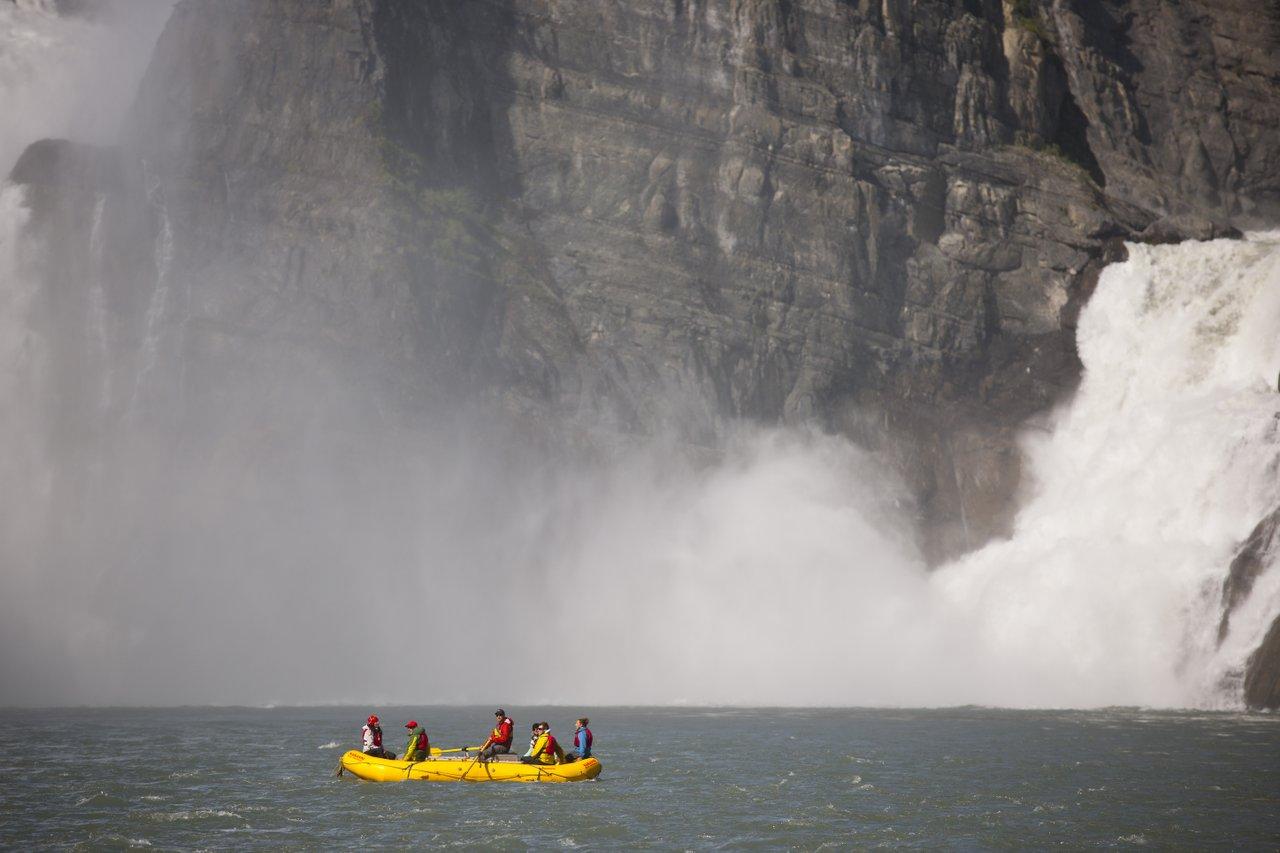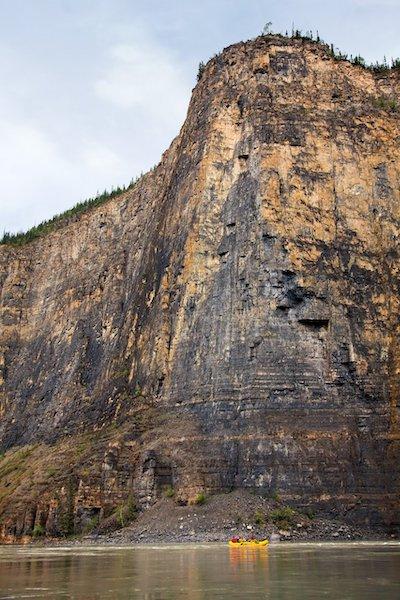
Rafting the Nahanni — here with Nahanni River Adventures an Canadian River Expeditions — is an iconic Canadian experience/Destination Canada
A new management plan for Nahanni National Park Reserve has been tabled in Parliament.
Reviewed every 10 years, management plans are a requirement of the Canada National Parks Act and guide the management of national historic sites, parks and marine conservation areas.
This plan outlines five key strategies that will guide Nahanni through the next decade.
“Nahʔą Kué/Our Home” (Sharing the Heart of the Dehcho) prioritizes sharing the stories, history and culture of the Dene as a central aspect of the visitor experience within the park’s pristine wilderness setting.
“Dene Náothę” (the Dene Worldview) is a strategy to foster traditional and contemporary Dene knowledge in management decisions, and engage the next generation in stewardship of the park reserve.
“Nahʔą Dehé Kˊeodhi” (Taking Care of Nahʔą Dehé) stresses the importance of meeting emerging environmental challenges facing Nahanni and about the active maintenance of the park’s ecological integrity.
“Yundáa Gogha Tu Kˊehodí” (Waters for Life) details the importance of protecting water resources and working with partners and communities to maintain water quality.
And finally, “Reconciling with Indigenous Rights Holders” is about expanding inclusive management approaches with Indigenous rights holders that have not previously been involved in cooperative management.

Nahanni National Park Reserve offers pristine wilderness/Destination Canada
The plan was based on input from Indigenous communities, including the Dehcho First Nations and Nahʔą Dehé Dene Band, who have cooperatively managed the park reserve for nearly 20 years. The draft plan was revised to acknowledge and support reconciliation with Indigenous rights holders that have not formally been involved in cooperative management. The plan also reflects the contributions of other partners and stakeholders, local residents and visitors.
“National historic sites, national parks and national marine conservation areas offer important opportunities to connect with Canada’s natural heritage, including the histories, cultures, and contributions of Indigenous peoples,” Michael McLeod, Member of Parliament, Northwest Territories, said in a written statement.
Parks Canada oversees a system of national heritage places that recognizes and honours the historic and contemporary contributions of Indigenous peoples, their histories and cultures, as well as the special relationships Indigenous peoples have with ancestral lands and waters.
Parks Canada calls Nahanni’s updated management plan “a clear demonstration of the Government of Canada’s commitment towards reconciliation and nation-to-nation relationships. Of note, it sets out a path to support Indigenous cultural land use and improve connections to the park reserve, to support ongoing cultural and language revitalization and knowledge transfer from Elders to youth.”
Nahanni is cooperatively managed with the Dehcho First Nations and Nahʔą Dehé Dene Band, the Indigenous peoples who continue their ancestors’ traditions of caring for the landscape of Nahʔą Dehé, the traditional name for the area now known as Nahanni.
It’s one of Canada’s largest national park reserves, protecting more than 33,000 square kilometres (about 13,000 square miles) of the Mackenzie Mountains natural region. Established in 1976, it was expanded in 2009 to its current boundaries.
Nahanni is a UNESCO World Heritage Site and home to the South Nahanni River, designated a Canadian Heritage River. The world-famous river is one of Canada’s most iconic river trips, and the alpine region known as the Cirque of the Unclimbables has become an international draw for the climbing community. Nahanni protects deep canyons, glaciers, high mountain peaks, outstanding karst systems and steeply carved plateaus.
The award-winning film Nahanni: River of Forgiveness was developed and produced in 2018. It followed Dene elders and youth who construct a moose skin boat in the park and paddle it down river out of the park. The project was a significant achievement for cultural revitalization as it was the first moose skin boat in three generations.



Add comment